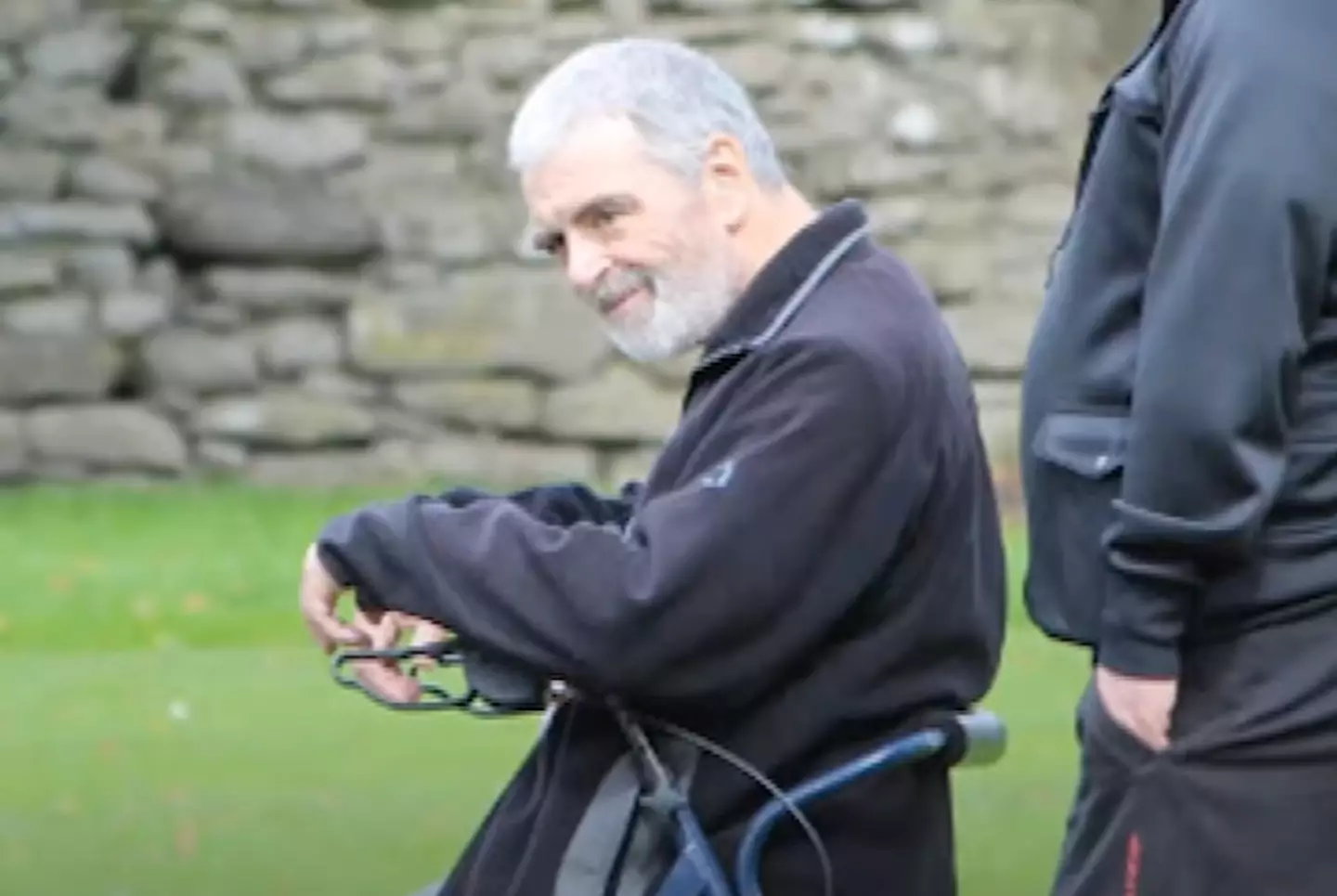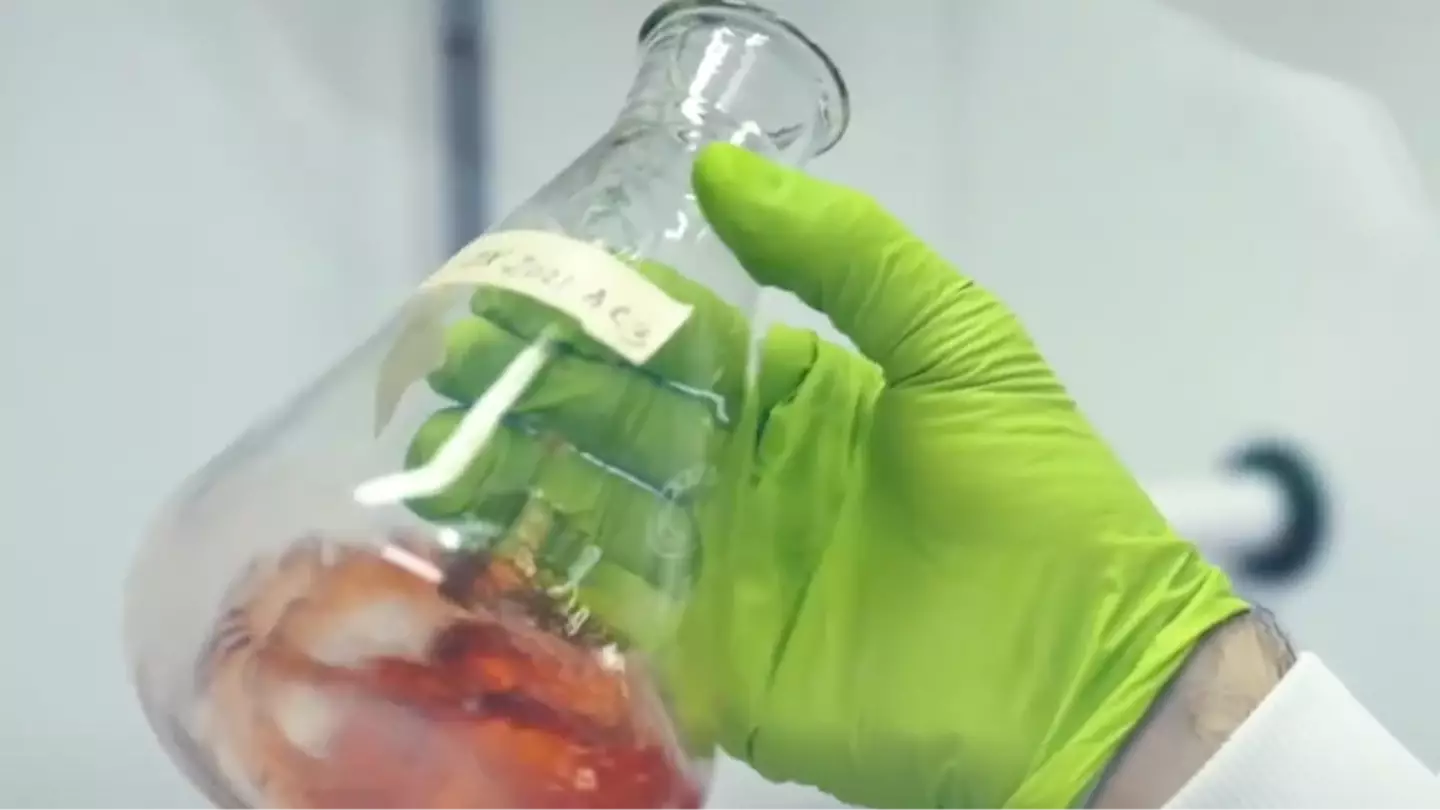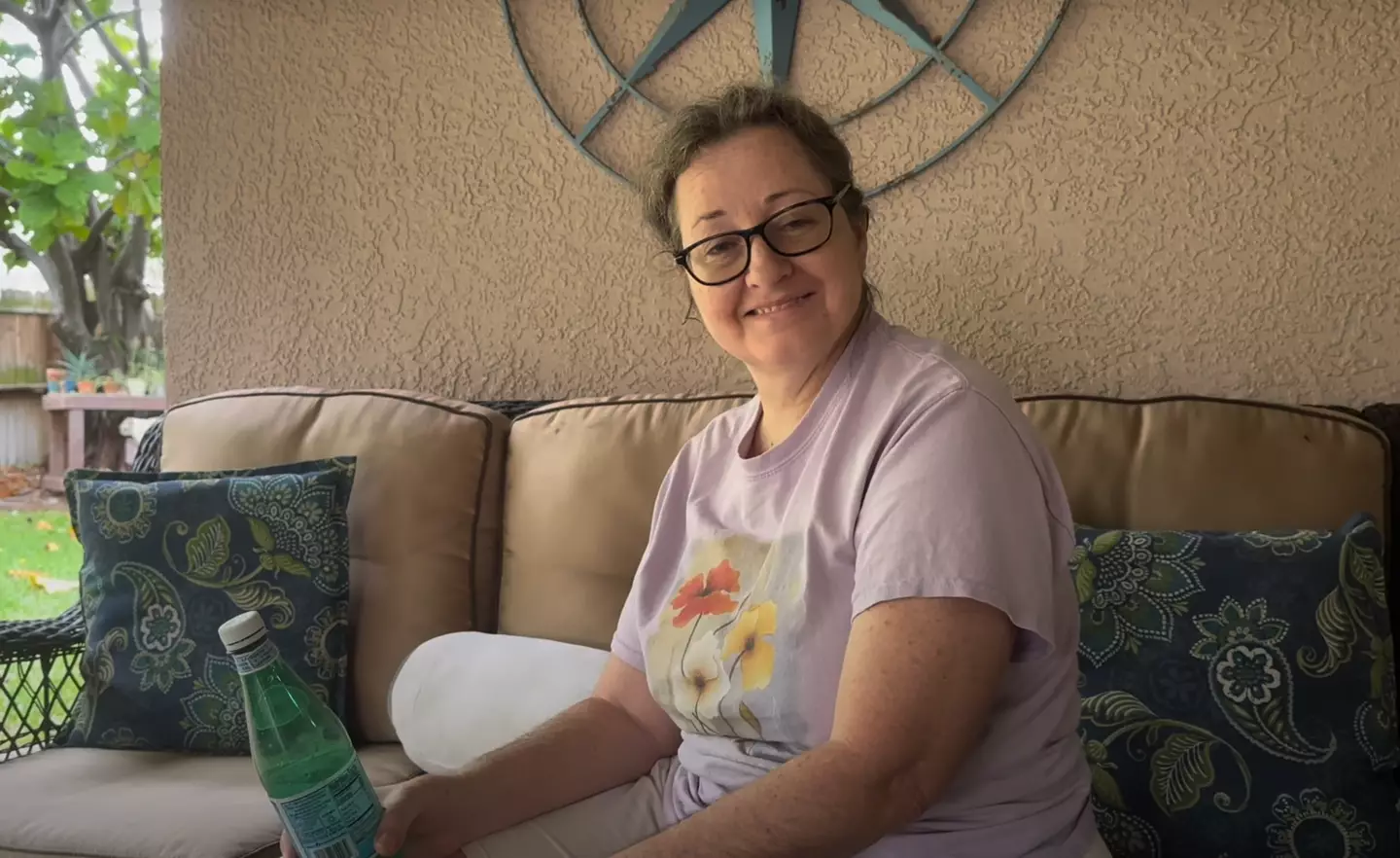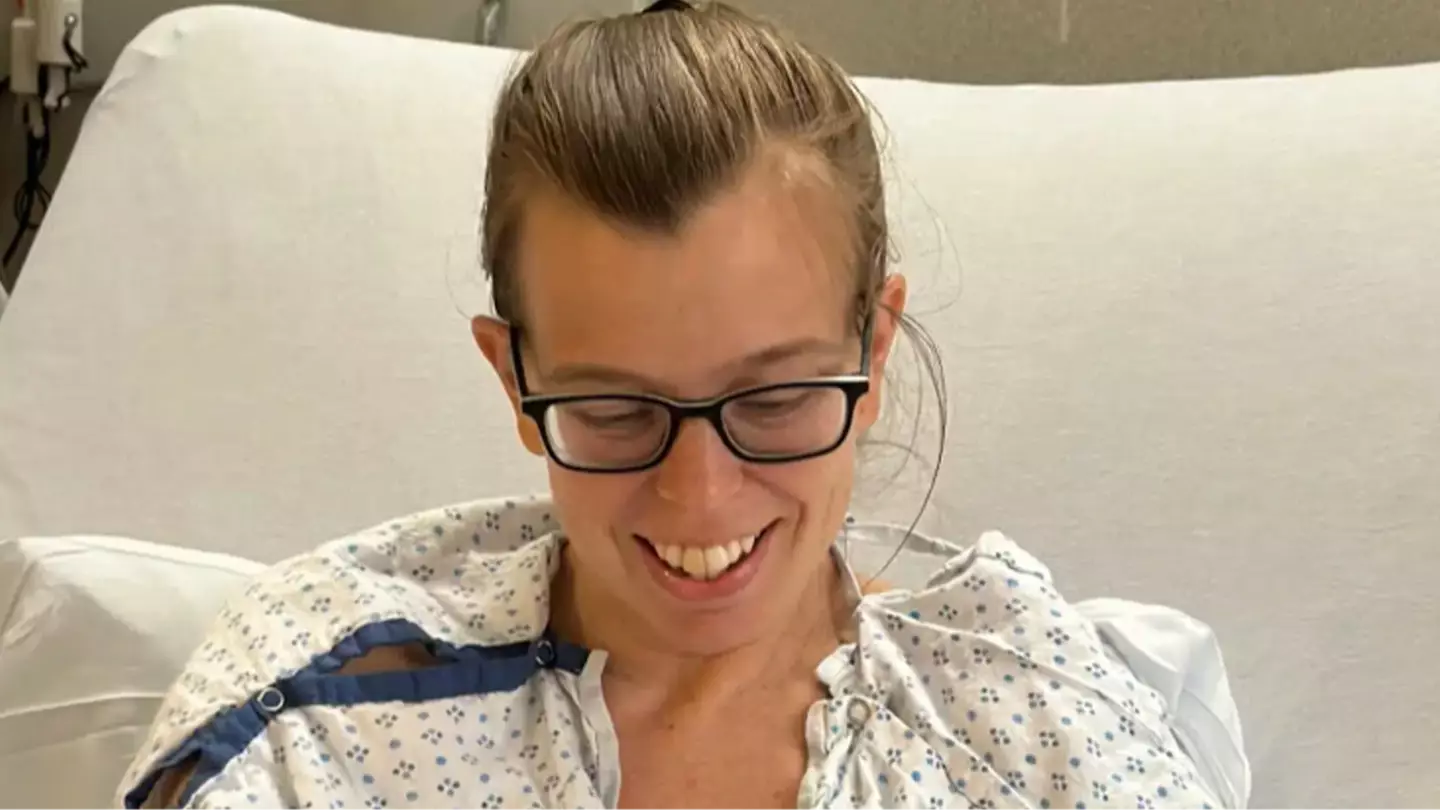A woman with a rare ‘superpower’ that made her able to ‘smell’ her husband’s disease 12 years before it developed is helping scientists create new ways to diagnose the condition.
Parkinson’s is a disease in which parts of the brain become damaged over a number of years and causes symptoms which include involuntary shaking of particular parts of the body; slow movement and stiff and inflexible muscles.
There currently isn’t a test for Parkinson’s, with a diagnosis relying on assessment, symptoms, family history and a neurological examination.


Joy Milne has the unique ability to smell people’s Parkinson’s disease (BBC)
Joy Milne, from Scotland, had been with her husband, Les, since she was 16 years old.
But in 1982, shortly before his 32nd birthday, she noticed that her husband’s scent was changing.
Science has already worked out why a person’s smell changes as they age, which all comes down to substance called 2-nonenal that’s found in the human body increasing as we get older.
Recalling the time, she told The Guardian: “In 1982, before Les’s 32nd birthday, I noticed a musky, dank odour on him – he knew about my heightened sense of smell. I thought it might be the unprocessed air of the operating theatres he worked in and told him to shower more. That caused arguments.”


Joy’s husband Les died in 2015 at the age of 65 (BBC)
After Les’ diagnosis, the pair attended a Parkinson’s support group when Joy was hit with an overwhelmingly familiar smell.
Joy has since gone on to do all she can to help scientists work out a way to use her sense of smell as a means of early Parkinson’s disease detection.
“Les and I should have been enjoying retirement, but Parkinson’s had stolen our lives,” said Joy.
“We became determined that others wouldn’t suffer the same way. When Les died in June 2015, he made me promise I’d carry on. I spent time in labs, smelling sufferers’ T-shirts and swabs for sebum – the skin oil we all produce, which changes with the onset of Parkinson’s.”


There is currently no definitive test for Parkinson’s (Getty Stock Photo)
Now, Joy has inspired scientists to develop a swab to help detect Parkinson’s prior to diagnosis.
A team of researchers at the University of Manchester, in the UK, have developed the skin swab, which they say is 95 percent accurate under lab conditions.
To develop the test, they analysed a substance on the skin called sebum, comparing people with Parkinson’s disease and those without.
They found thousands of unique compounds, 500 of which were different when comparing both groups.
Professor Perdita Barran, who led the research, said: “At the moment we have developed it in a research lab and we are now working with colleagues in hospital analytical labs to transfer our test to them so that it can work within an NHS environment.
“We are hoping within two years to be able to start to test people in the Manchester area.”
Joy has spoken about what an earlier diagnosis would have meant for her family, explaining: “We would have spent more time with family.
“We would have travelled more. If we had known earlier it might have explained the mood swings and depression.”
Featured Image Credit: YouTube/BBC News


Scientists are on the verge of making a medical breakthrough with a new ‘cancer vaccine’ that could stop the disease in its tracks 20 years early.
In the United States, cancer continues to devastate hundreds of thousands of families every single year.
According to the National Cancer Institute, more than two million new cases of cancer were diagnosed in the US last year, with 611,720 people dying from the disease.


Thousands of families are devastated by cancer every year in the US (Getty Images)
The most common cancers are breast cancer, prostate cancer, lung and bronchus cancer, colon and rectum cancer, melanoma, bladder cancer, kidney and renal pelvis cancer, non-Hodgkin lymphoma, endometrial cancer, pancreatic cancer, leukemia, thyroid cancer, and liver cancer, the institute warns.
However, there could be a breakthrough on the horizon, as scientists from the University of Oxford, UK, inch nearer to creating a vaccine to prevent the disease.
Researchers have revealed they have plans to ‘detect the undetectable’ by pinpointing the changes cells make two decades before cancer begins to develop, reports The Mirror.


Cancer could be prevented with the vaccine some 20 years before it takes a hold (Getty Images)
Speaking to BBC Radio 4’s Today programme, professor Sarah Blagden, who is co-leading the project with pharmaceutical company, GSK, explained the team will study ‘pre-cancer biology’.
She said: “Cancer does not sort of come from nowhere.
“You always imagine it would take about a year or two years to develop in your body but, in fact, we now know that cancers can take up to 20 years, sometimes even more, to develop – as a normal cell transitions to become cancerous.
“We know that, actually at that point, most cancers are invisible when they are going through this, what we now call pre-cancer stage. And so the purpose of the vaccine is not to vaccinate against established cancer, but to actually vaccinate against that pre-cancer stage.”
The project comes as part of the GSK-Oxford Cancer Immuno-Prevention Programme while the university has already established itself as a lead in vaccines – most notably the first Covid-19 vaccines – as well as identifying other cancers.


The news comes as there are already a handful of cancer vaccines being developed (Getty Images)
The researchers have already identified tumour-specific proteins which could be stopped by vaccines to prevent cancer from coming back, but the new research looks to possibly vaccinate sufferers before cancer even takes a hold.
Professor Irene Tracey, Vice-Chancellor of Oxford University, praised the partnership as a ‘step forward’ in cancer research with high hopes the team will ‘unlock the potential of cancer vaccines and bring hope to patients worldwide’.
The news also comes as the researchers say there is already a number of potential preventative cancer vaccines under development from the university, including the ‘LynchVax’ for people affected by Lynch syndrome (a genetic disorder that increases the risk of developing certain cancers), ‘OvarianVax’, which ‘teaches’ the immune system to recognize and attack early stages of ovarian cancer, and ‘LungVax’ which could prevent or delay the onset of cancer in people at risk of certain types of lung cancer.
Featured Image Credit: Oxford Cancer via YouTube
Topics: Cancer, Health, Science, UK News, World News, US News


A woman who has an extremely rare ability to smell Parkinson’s disease revealed what she smelt on her husband before his diagnosis.
Joy Milne is a bit of a medical marvel. The Scotswoman had been has been with her husband, Les, since she was 16 years old and, with the length of time they’d been together in mind, it’s safe to say she became accustomed to his smell.
But Joy all of a sudden began noticing a change in her spouse’s odor.
Science has already worked out why a person’s smell changes as they age, which all comes down to substance 2-nonenal that’s found in the human body increasing as we get older.
But Les’ changing smell wasn’t just age related, but health related as well.


Joy Milne has the unique ability to smell people’s Parkinson’s disease (BBC)
Like how some dogs can be trained to smell certain cancers or when their owner might be about to have a seizure, Joy is able to smell Parkinson’s disease on people.
It was around Les’ 32nd birthday that Joy spotted a change in her husband’s smell.
Recalling the time, she told The Guardian: “In 1982, before Les’s 32nd birthday, I noticed a musky, dank odour on him – he knew about my heightened sense of smell. I thought it might be the unprocessed air of the operating theatres he worked in and told him to shower more. That caused arguments.”
12 years later, he was diagnosed with Parkinson’s disease — the same condition that actor Michael J. Fox has.


Joy’s husband Les died in 2015 at the age of 65 (BBC)
The pair went on to make the connection between Joy’s sense of smell and his diagnosis, but it wasn’t until later that they discovered that she was able to detect the disease in other people too.
Les and Joy had attended a Parkinson’s support group when she was hit with an overwhelmingly familiar smell.
After come to learn about the scale of her unique skill was, Joy has gone on to do all she can to help scientists work out a way to use her sense of smell as a means of early Parkinson’s disease detection.
“Les and I should have been enjoying retirement, but Parkinson’s had stolen our lives,” said Joy.
“We became determined that others wouldn’t suffer the same way. When Les died in June 2015, he made me promise I’d carry on. I spent time in labs, smelling sufferers’ T-shirts and swabs for sebum – the skin oil we all produce, which changes with the onset of Parkinson’s.
“I could detect whether the person had the disease with 95% accuracy. I was surprised.”
Joy has spent the last few years working with the University of Manchester, UK, on research, and has even been named in a paper published in the journal ACS Central Science.
Such research she’s helped with has revealed that a number of compounds, particularly hippuric acid, eicosane, and octadecanal, were found in higher than usual concentrations on the skin of Parkinson’s patients, BBC News reported.
Featured Image Credit: BBC


At just 49 years old, a once-high flying accountant was diagnosed with early-onset Alzeimer’s – a crippling disease that saw Theresa Pippen fired from her job and stacking shelves in the space of a year.
But her symptoms were evident for years prior to that, although she and husband Trey Pippen – both from Florida – couldn’t put their finger on exactly what it was, with dementia commonly developing in your late 60s and early 70s.


Trey and Theresa Pippen created a YouTube channel to spread awareness of early-onset Alzheimer’s disease (YouTube/Trey & Theresa Pippen)
Taking to their YouTube channel in 2020, Trey sat down with his wife to raise awareness of the chronic condition.
“Today we’d like to share with you our story with Alzheimer’s disease,” he said.
“Theresa was diagnosed with early onset Alzheimer’s disease back in November of 2018 at the age of 49 however, our story doesn’t start there. It actually starts several years prior to that, back in late 2012/early 2013 where Theresa was starting to show signs of mild cognitive impairment.”
Revealing what her early symptoms were, he continued: “However, we didn’t really know what it was called back then, but Theresa was definitely starting to change, she was, earliest signs were basically failure to keep commitments or keep promises that she made. She would start projects and not finish them.
“She was starting to spend less and less time with her family, and became estranged from a few of them. Our marriage started to suffer as a result of some of these changes, because I was frustrated with what was going on, and I couldn’t figure out what why these changes were taking place.”
One of the early symptoms of Theresa’s condition, that the couple were not aware of until years later, cause Theresa to have problems doing her job.
“She also started having trouble at work. In 2014, she was demoted. Theresa had worked as an accounting professional for nearly 20 years, and many of those years as a senior financial analyst, and suddenly she was struggling with her job, and she got demoted.”
Trey explained how she managed to hold down her job for another two years before being terminated – despite her putting long hours in and being the last to leave work. Unbeknown to Theresa, she simply didn’t have the thought power she used to possess.
“Her termination occurred at a time where the company was going through a merger and a number of people were laid off. So, it wasn’t immediately evident to me that it was related to any sort of cognitive impairment that she might have been having,” he shared.


Theresa tragically passed away in March last year (YouTube/Trey & Theresa Pippen)
Theresa then struggled to find a job, which came as a surprise to Trey as she was always the one to proofread his resumes. After several interviews – and one role that she was hired and subsequently fired from – she decided to pack accounting in.
She took up work as a receptionist before she was let go and ultimately took up a job at a local supermarket in 2017.
After a year in the role, Trey explained how it became apparent that something was wrong beyond her simply being stressed and depressed. It was then that they finally received the devastating diagnosis.
Tragically, Theresa has since passed away on March 3, last year.
Featured Image Credit: YouTube/Trey & Theresa Pippen
Topics: Health, Psychology, Science, YouTube, Sex and Relationships, Mental Health, Jobs, Business


One woman who was confident she didn’t have cancer, and was reassured by doctors ahead of her diagnosis that it wasn’t anything too concerning, had a pretty devastating surprise during her pregnancy.
Pregnancy can put a strain on anyone at the best of times, and most are just happy and hoping to deliver a healthy bouncing baby.
There likely isn’t much more frightening than to learn that while pregnant, you have a life-threatening illness as well.
Well, 39-year-old Michelle Kaba from New Jersey had to deal with this reality, but the difference is doctors insisted that there wasn’t anything she should be concerned about.
Speaking about her cancer diagnosis in a candid report for the Stupid Cancer organization, she said: “When I was pregnant, I was diagnosed with pancreatitis. I went through 4 different hospital stays in the span of 5.5 months and was placed on a strict, low-fat diet.


Kaba was initially told that the growth could be removed after she had been given birth but complications prevented this (Stupid Cancer)
“After the birth, the pancreatitis was going to be gone for good and life would go back to ‘normal’.
“They said the growth they found while I was 20 weeks pregnant was benign, and it just needed to be removed after our baby was born. The doctors weren’t concerned, so neither was I.”
However, it soon turned out that the growth was no longer benign; in fact, it had even grown larger. Another biopsy was taken, and it was eventually revealed that Kaba had ampullary cancer.
After multiple tests and second opinions, Kaba and her family got some good news: the cancer hadn’t spread, it was still in stage one, and could be removed via surgery after some chemotherapy.
Speaking about her difficult road to recovery, she added: “My Whipple Procedure was successful.
“With part of my pancreas and small intestine removed along with my whole gallbladder, the tumor was gone and the pathology reports confirmed there was no longer cancer in my body.
“In a 3-week period, I was diagnosed and freed from cancer, all while becoming a new mom. It was a complete whirlwind that I still haven’t fully processed.”
What are the symptoms of ampullary cancer?
According to the Cleveland Clinic, ampullary cancer is a rare and aggressive type of carcinoma that forms in an area of your body called the ampulla of Vater.
This area is a small opening where your bile duct and pancreatic duct join.


Kaba received good news that her cancer was in Stage 1 and could eventually be removed (Stupid Cancer)
Due to its location in the body, there are often fears that the cancer can spread to the liver, pancreas and other digestive system organs.
Regarding symptoms, people with this type of cancer can experience jaundice – yellowing of the skin and eyes.
Other ampullary cancer symptoms include:
- Unexplained weight loss
- Loss of appetite
- Nausea and vomiting
- Abdominal pain
- Back pain
- Itchy skin
- Fever
- Diarrhea
- Anemia
- Pancreatitis
- Rectal bleeding
- Fatty poops (may be greasy and clay-colored)
If you begin to experience these symptoms, it is advised you speak to your healthcare professional and get tested.




